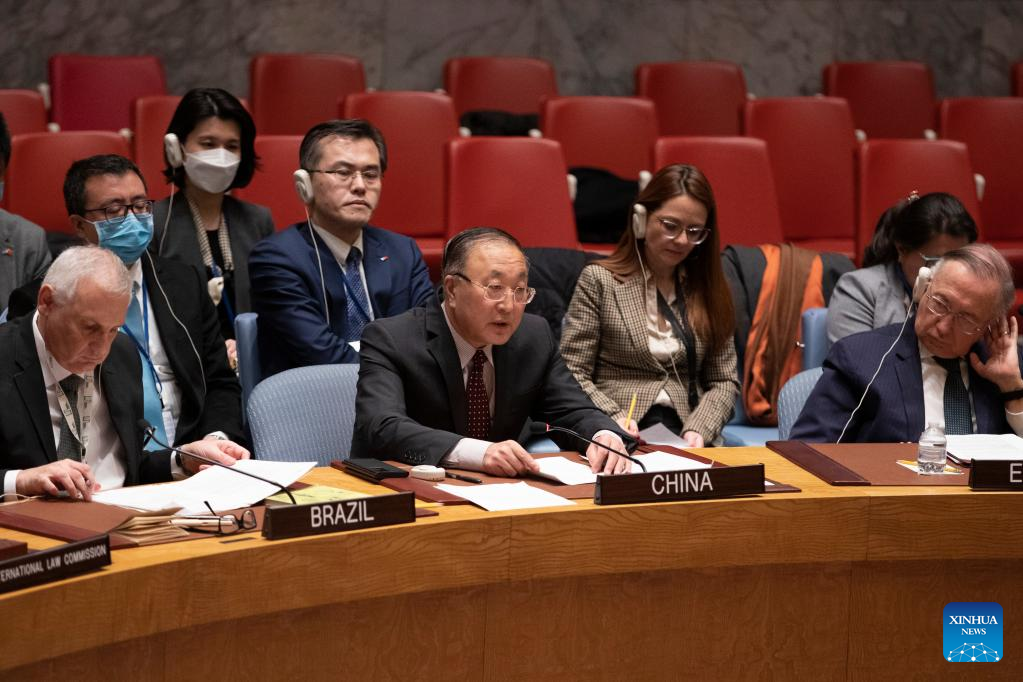China’s permanent representative to the United Nations, Zhang Jun has called on the international community to do all that it can to reduce global warming and contain the trend of rapid sea-level rise.
Jun wants the international community to adopt a greater sense of urgency that would see it seize the opportunity to take all necessary actions and prevent climate change from causing irreversible catastrophes to humanity.
“To achieve the temperature cap set out in the Paris Agreement, developed countries must take the lead in further reducing emissions,” Zhang was quoted as saying at a Security Council debate on “Sea-level Rise: Implications for International Peace and Security” on Tuesday.
The Chinese envoy bemoaned how there has been a backtrack in the energy policy of some developed countries and how it has led to an increase rather than decrease in their fossil fuel consumption and carbon emissions since 2022, thereby making the global emissions reduction prospect even more precarious than it already is.
Read also: IKEA reduces climate footprint with help from new light bulbs
He noted that most developed countries set forth their carbon peaking and carbon neutrality targets and programs relatively early but he urged them to lead by example by taking concrete actions for their implementation as the world seeks to carbon emissions at bay, adding that developed countries are also obliged and responsible for providing climate change financing and assistance to developing countries.
In 2009, developed countries pledged 100 billion U.S. dollars annually to developing countries, but that has yet to be truly delivered up to date.
Worse still, certain country, while passively responding to the funding needs of developing countries, invests hundreds of billions of dollars in hefty subsidies to their domestic manufacturing industry through the so-called Inflation Reduction Act, purportedly to promote their energy transition, Zhang said.
“Such hypocritical and self-serving, green protectionism violates WTO rules, discriminates against relevant industries in other countries, and undermines the collective efforts to tackle climate change globally,” he said.
The envoy also highlighted the importance of sticking to the principle of common but differentiated responsibilities which bears on international equity and justice, saying that “deviation from this principle will severely damage the unity and cooperation of the international community to tackle climate change.”
He also called for the international community to effectively address the concerns and needs of small island developing states that are most exposed to climate shocks but the least adaptable, and help them with capacity building through financial and technical assistance, build up their climate resilience, and achieve green and low-carbon development.
He pointed to the discharge of nuclear-contaminated water from the Fukushima nuclear power plant as “a pressing challenge,” which will seriously damage the marine environment and people’s health, with small island developing states and their people bearing the brunt.
“China urges Japan to fulfil its international obligations, dispose of the nuclear-contaminated water in a science-based, open, transparent, and safe manner, and effectively protect the marine environment and ecosystem,” Zhang said.
Story was adapted from People’s Daily Online.
